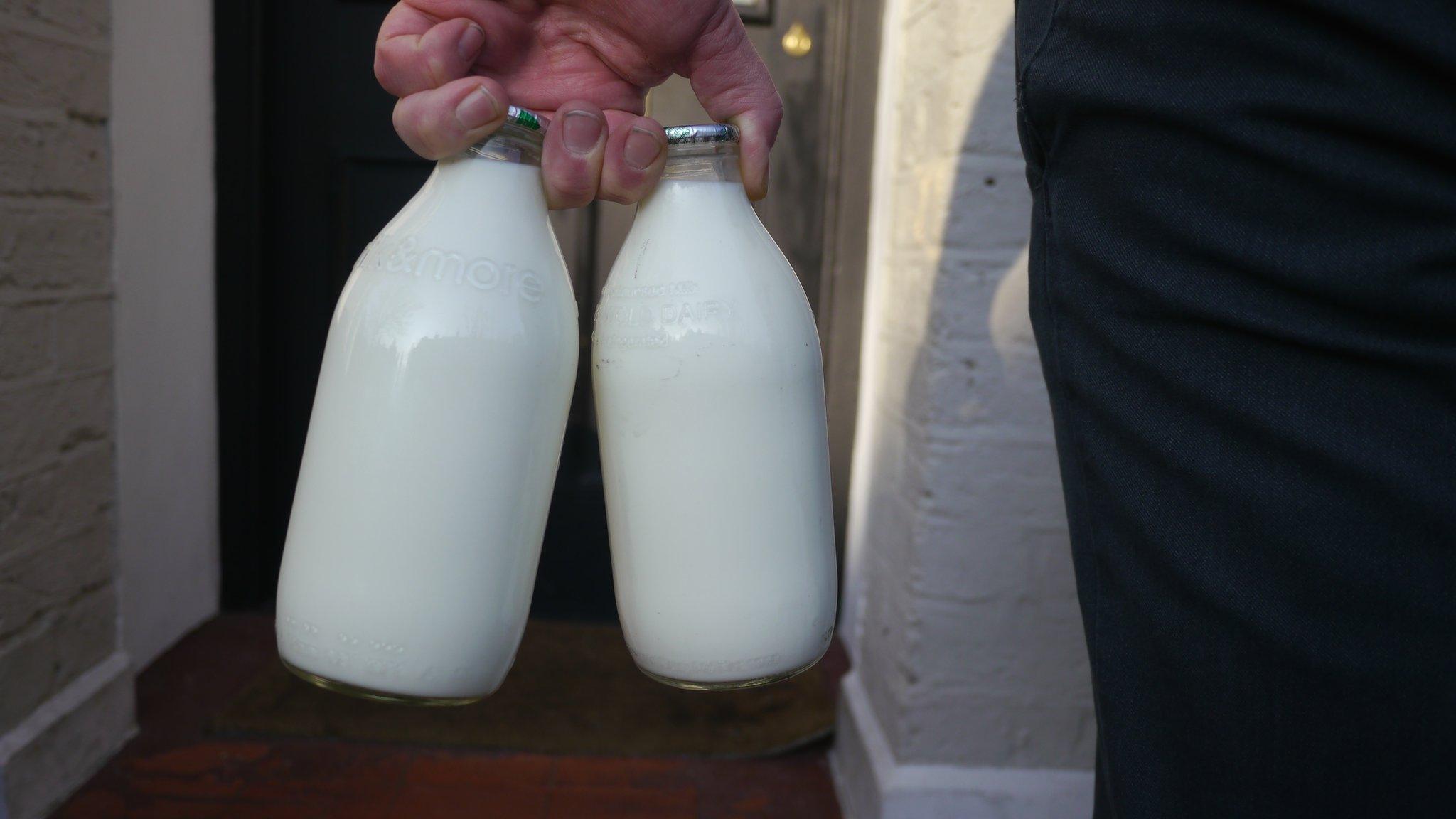Coronavirus: The rise of the milkmen and women
- Published
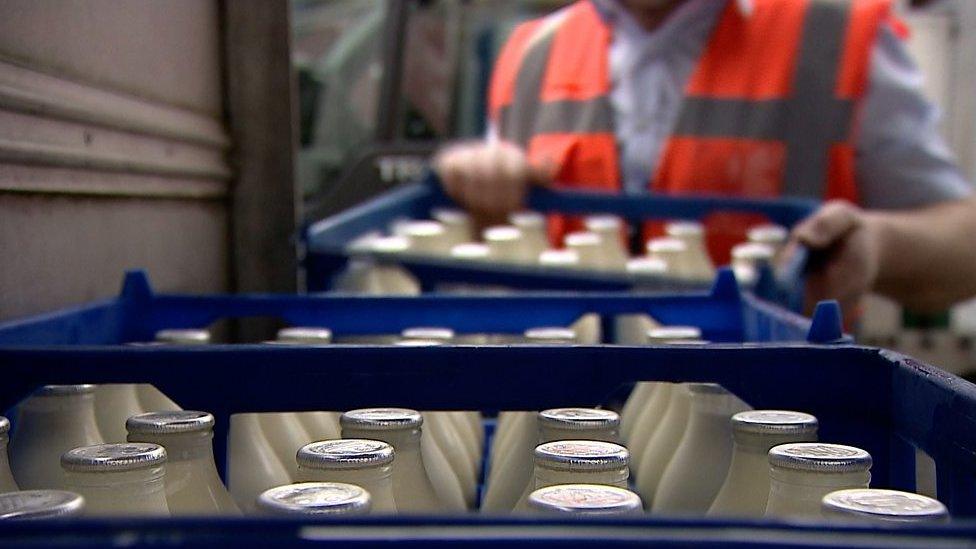
The hum of the milk float and the clink of bottles on the doorstep was once a familiar sound of early mornings in towns and cities across the UK.
With supermarket online delivery slots at a premium during coronavirus self-isolation, thousands of people have been turning to traditional - and for some, new - methods of getting their daily pinta.
Despite distribution issues leading to milk being poured away, demand for doorstep deliveries has risen, with a growing army of milkmen and women providing more than just bottles of the white stuff.
'I've been overwhelmed with gifts'
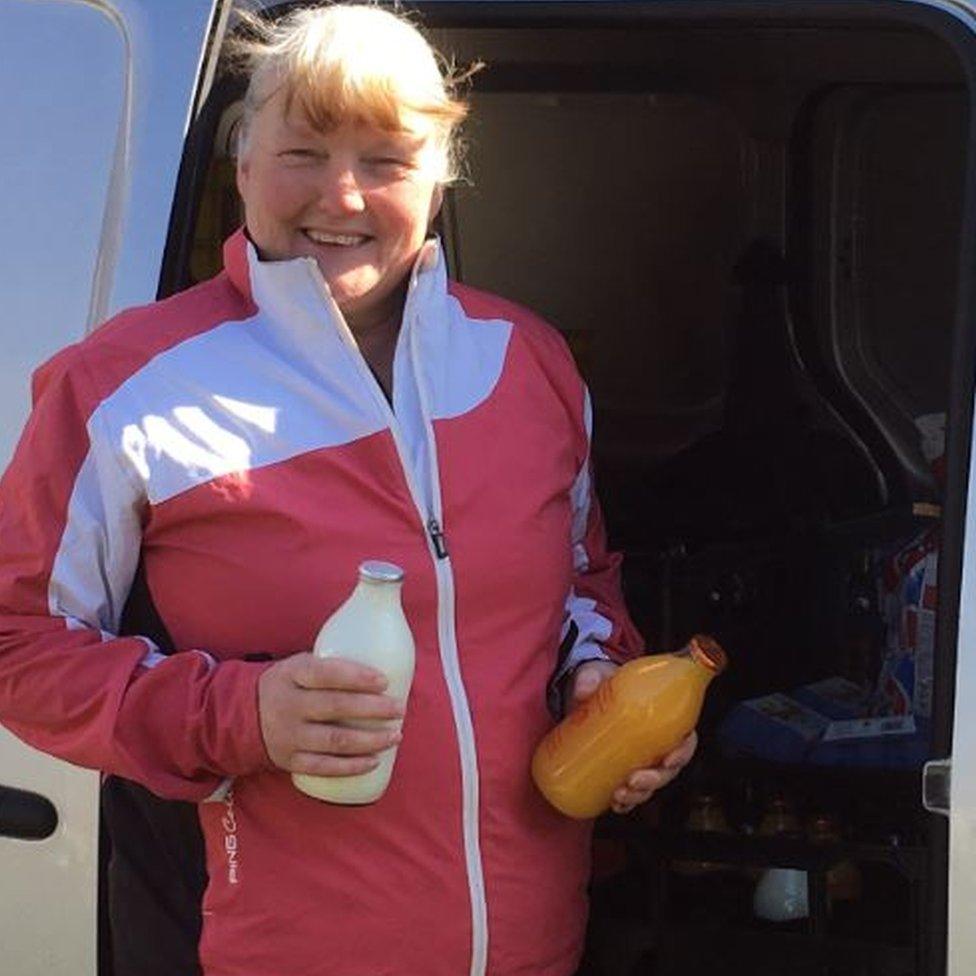

"It's really full-on," says Lynne Walls, who has a small milk round in Horsforth, a suburb of Leeds.
"It has made a big difference to my life. I am starting work much, much earlier and finishing later."
She wakes up at 02:00, six days a week, to start work as orders have doubled since lockdown began.
After her round ends she spends most of the day answering messages and emails, but quips: "We don't have much else to do at the moment, do we?"
She adds: "I've started doing bread, butter and various fruit juices, as well as all the different types of milk, to help people out that are isolated.
"I have been absolutely overwhelmed with gifts.
"I have had boxes of chocolates, Easter eggs, bottles of wine, flowers, lots of cards and notes of thanks, and young children doing me drawings which always make me smile."
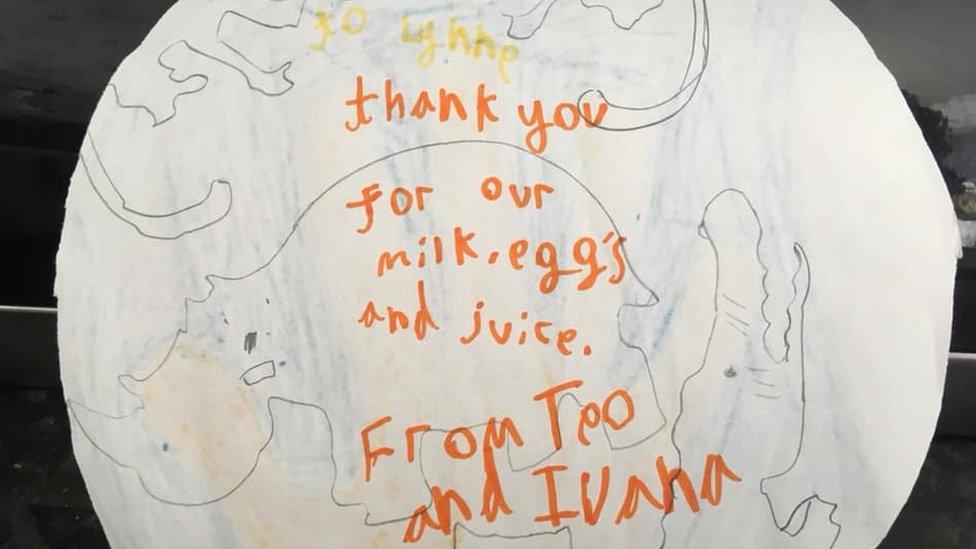
'My float is really full'
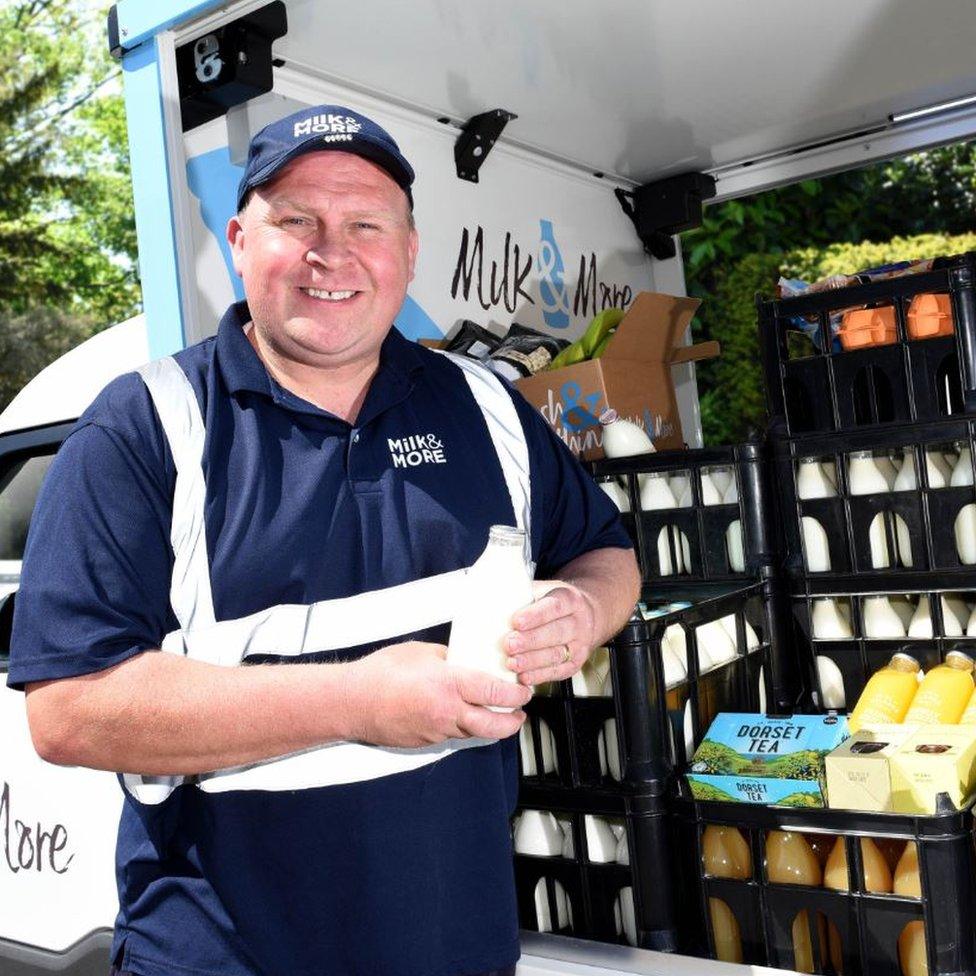

"It makes my day when I find a handwritten thank-you note on a doorstep and I'm receiving several a day," says Ian Beardwell, from Islington, north London, who has been a Milk and More milkman for 31 years.
"The response from my customers - and I am sure the same is true for my colleagues - has been fantastic and everyone has really appreciated that we are doing our very best."
The UK delivery company, which was bought by German-owned dairy giant Muller from Dairy Crest in 2015, says: "We simply don't have enough milkmen and women to keep up."
The firm, which has about 1,000 milkmen and women selling 200 different products, has been dealing with "unprecedented volumes of customers", with 25,000 people signing up since lockdown began.
It even had to stop accepting new customers for a time and is currently trying to recruit an extra 100 staff.
"My existing customers have been ordering more too," says Mr Beardwell, adding: "In fact, product sales have doubled, which means my float is really full.
"As I'm having to make roughly 20 additional calls a day, my round is taking longer to complete than it usually does, but in times like these we all need to do our bit and I'm happy to be able to do mine."
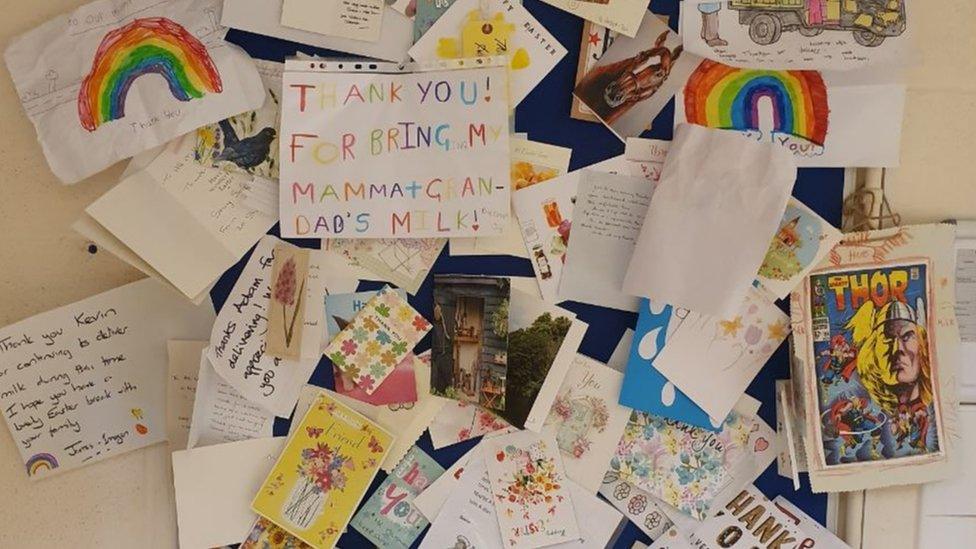
'I am just so grateful'
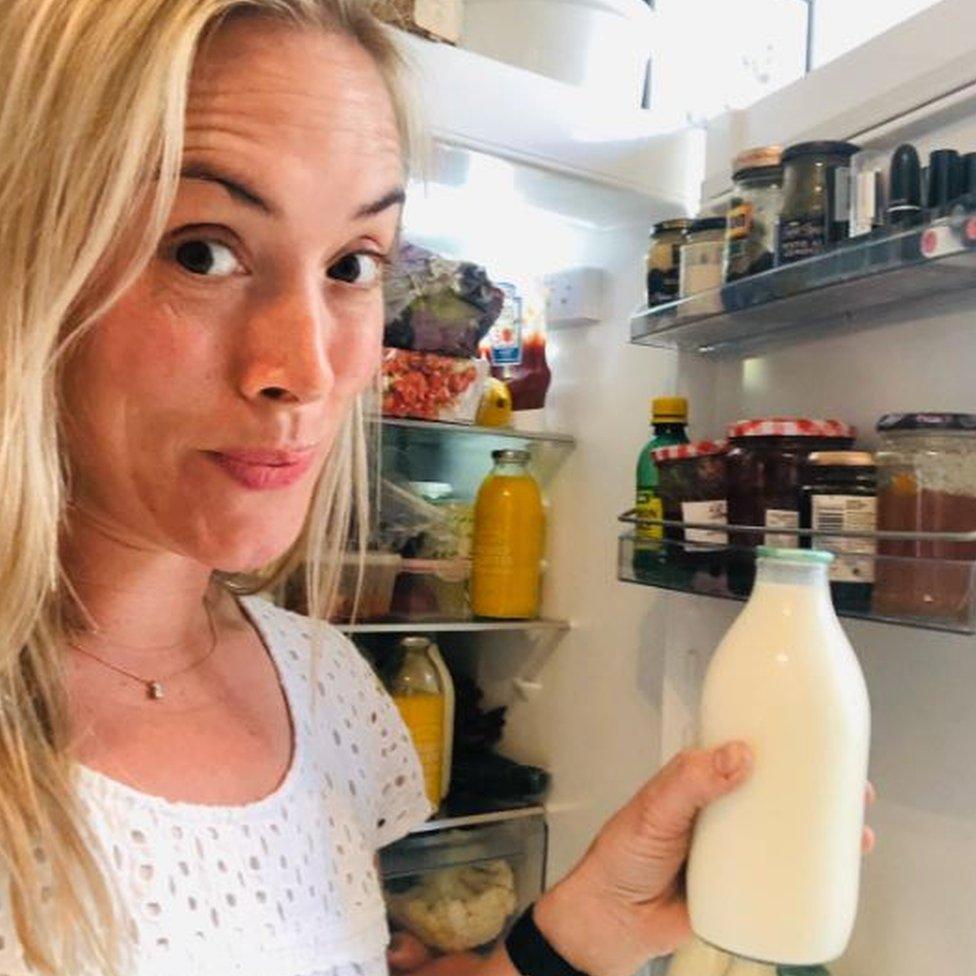

"It's like finding treasure on the doorstep every morning," says new customer Jo Heaton, from Sherborne in Dorset.
"I did my first order in February in a bid to cut down on plastics but when lockdown happened I was even more relieved I'd done it."
She has upped her daily order from three pints to five, so she can provide her self-isolating friends with milk when they are unable to book a delivery.
"I have never woken up and not had it in time for breakfast. I've been leaving thank-you notes for the milkman because I am just so grateful.
"Our kids love having porridge so it's nice to know they are still able to have that in lockdown, and I've been making milky coffees at home now I can't go out to the cafes."

'Cheap food comes at a high price'
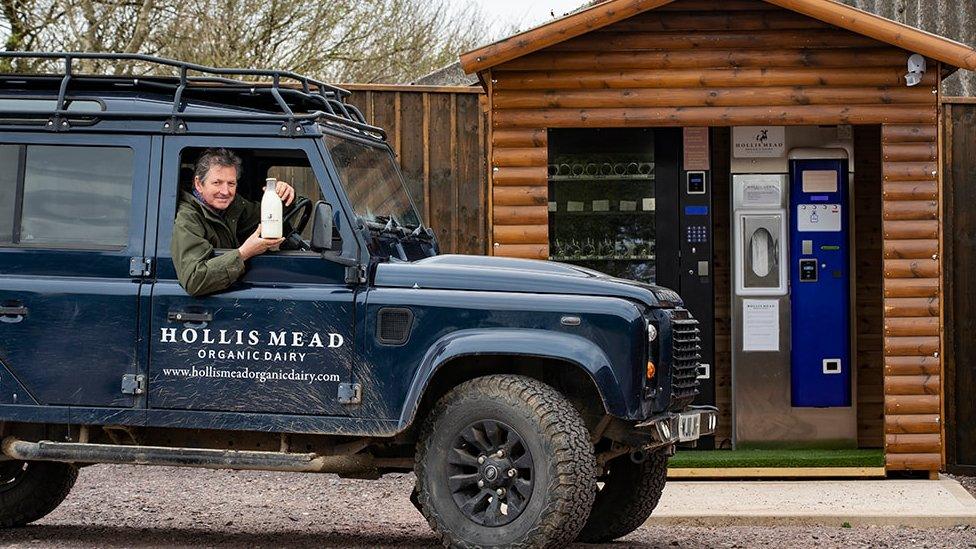
"People absolutely love it," says farmer Oliver Hemsley, who has a herd of 75 cows. "They say it's what milk used to taste like."
The start of the pandemic coincided with his farm, near Beaminster in Dorset, starting organic milk sales.
Mr Hemsley is bypassing the conventional distribution system by selling his milk from his farm, using five specially built vending machines.
The machines each dispense up to 200 litres of milk a day, allowing customers to fill up bottles or other reusable containers, and Mr Hemsley is planning to set up more at farm shops and other local businesses.
He says he is "assiduous" about cleanliness and his customers don't have to come into contact with other people.
"Customers like the fact it's local, it's organic, it supports the wildlife - and that really means something.
"Hopefully we've passed 'peak supermarket'. We're learning that cheap food comes at a high price - nature."
'They won't forget us'
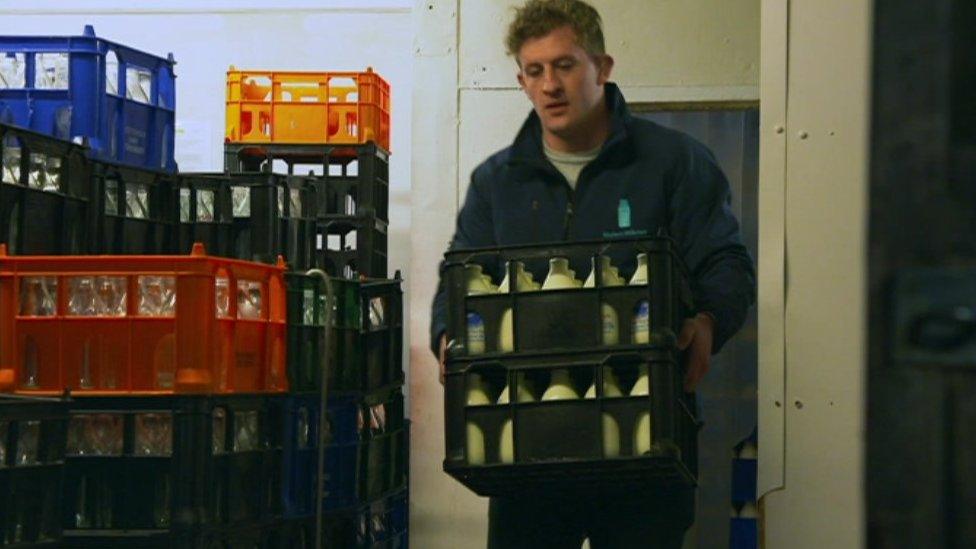
"The lockdown is going to change the way people shop forever," says Simon Mellin, who set up The Modern Milkman in Colne, Lancashire, with three friends.
They bought a milk round and developed a smartphone app to allow customers to order locally produced milk and cut down on their use of plastic cartons.
When lockdown began, they had an influx of 1,200 new customers a day and now make 50,000 deliveries a week across Greater Manchester, Yorkshire and east Lancashire, along with their newest hub in Nottinghamshire.
Mr Mellin admits it has "been a real challenge" to keep up with demand, with the need to recruit and train up to 10 new drivers a day.
And it's not just his customers who have benefited from the doorstep deliveries, Mr Mellin says.
Meat and fruit and veg box deliveries are now distributed on the firm's milk rounds, providing a "lifeline" for local suppliers who saw demand from the hospitality sector slump when pubs and restaurants shut.
Mr Mellin says he's confident of keeping many of his new customers once the coronavirus crisis is over.
"They've needed us when they had to stay at home and they won't forget us."

A SIMPLE GUIDE: How do I protect myself?
AVOIDING CONTACT: The rules on self-isolation and exercise
LOOK-UP TOOL: Check cases in your area
MAPS AND CHARTS: Visual guide to the outbreak

- Published19 March 2020
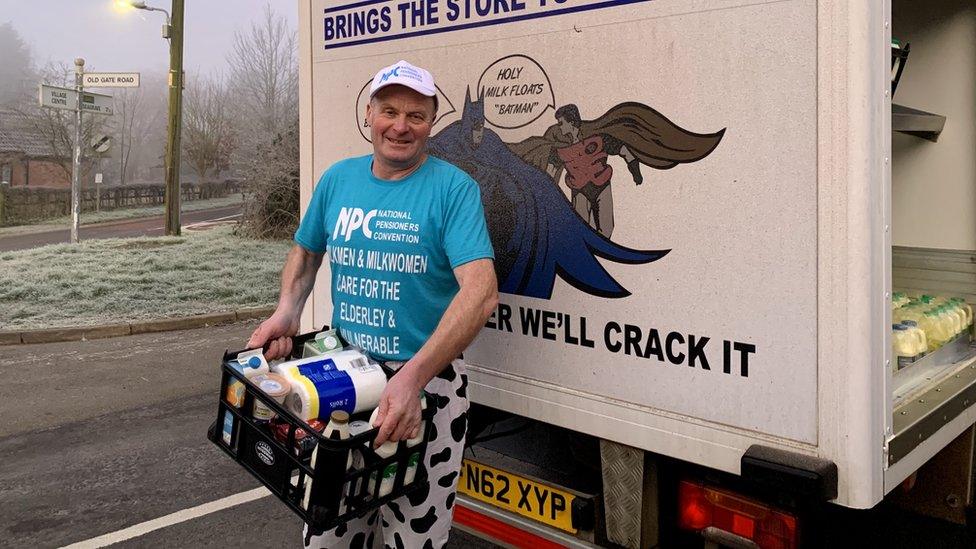
- Published9 April 2020
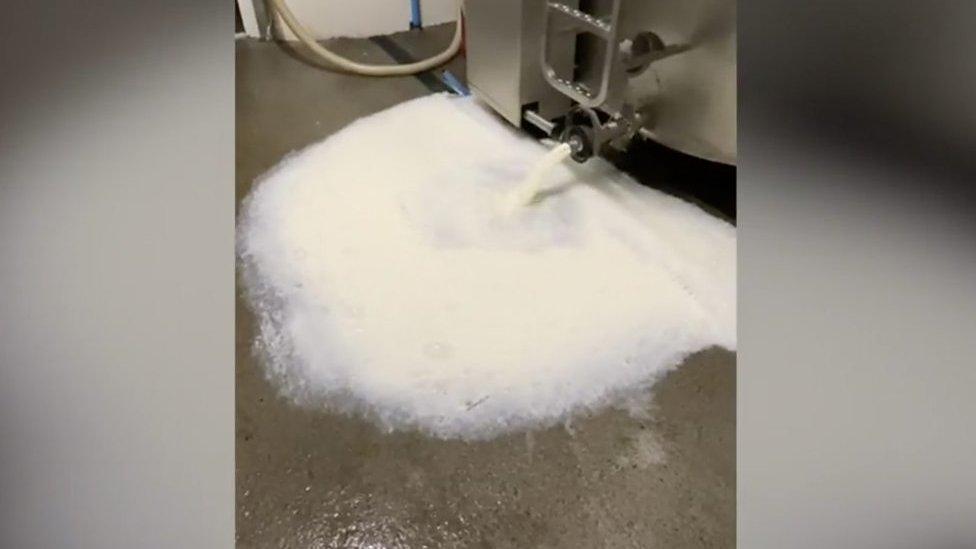
- Published12 April 2018
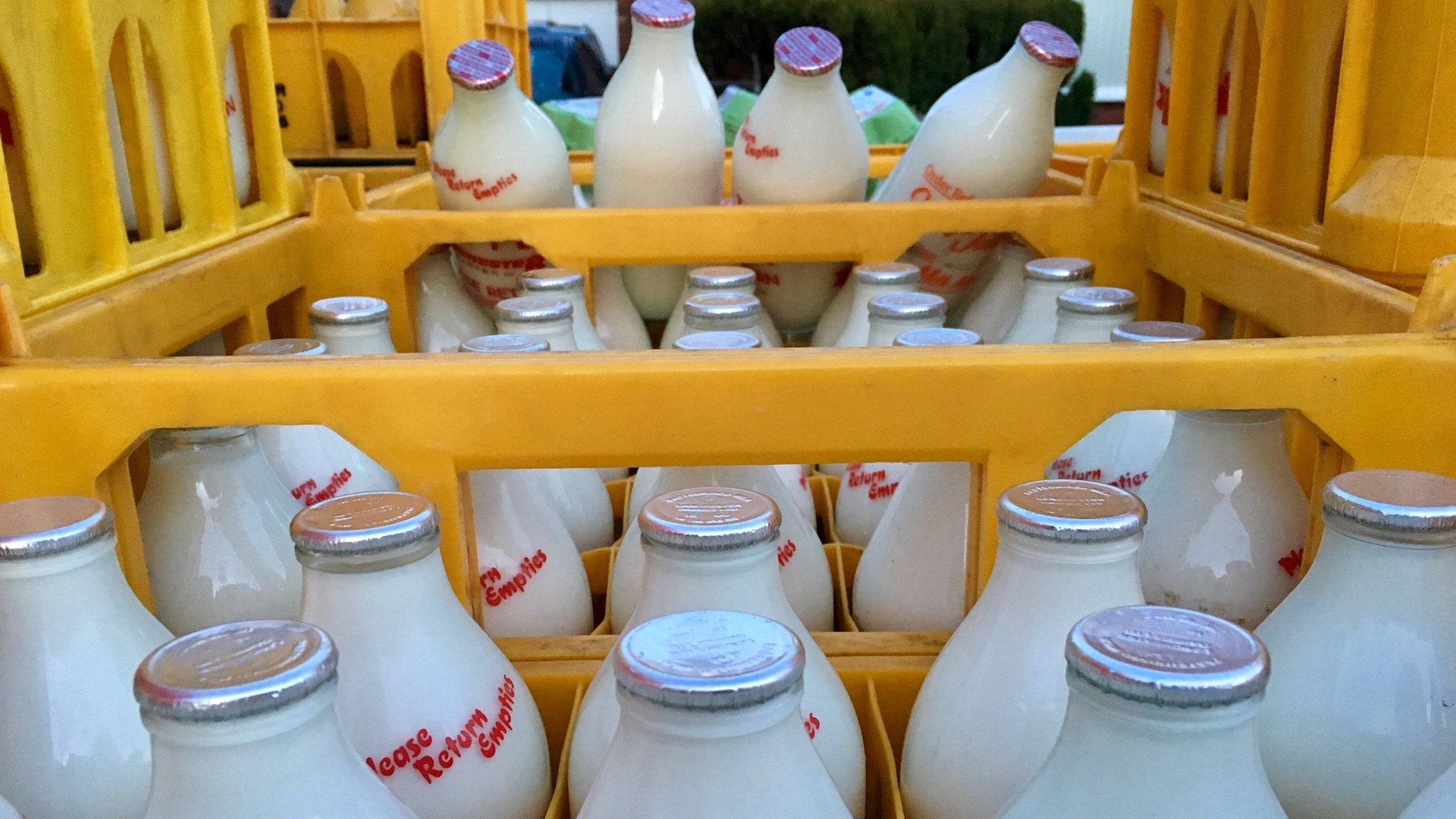
- Published21 June 2019

- Published25 March 2016
